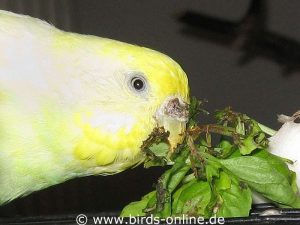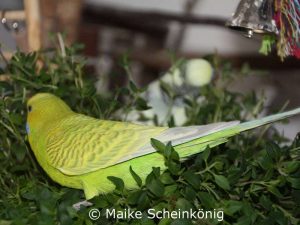- >>
- Birds Online – English
- >>
- Nutrition
- >>
- Fresh food
- >>
- Herbs
Herbs for birds
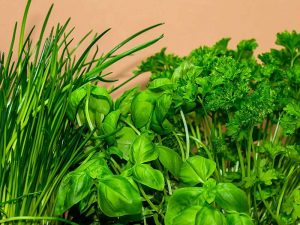
Budgies and other pet birds like to eat plants with delicate leaves. It is therefore not surprising that they love aromatic culinary herbs. However, they may have to acquire a taste for it first. It is worth getting the birds used to this fresh food.
Because culinary herbs are easy to cultivate in the garden, on the balcony, or even on the windowsill and are therefore available as food for birds all year round. In Germany, you can also find herbs in flower pots in many supermarkets, so you don’t even have to grow them yourself. It is best to buy organic herbs as bird food, as this ensures that the plants are not contaminated by pesticides.
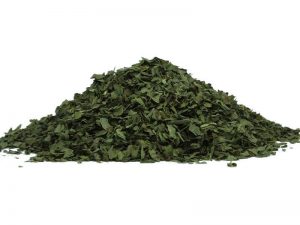
If you want to preserve herbs to feed them to pet birds later, you should not freeze the plant parts. They become very mushy as a result and are usually no longer accepted by birds. Drying the herbs is much more practical. But it it essential to ensure that no mould occurs during the drying process.Care should also be taken when buying dried culinary herbs. Even organic herbs are not always free of contaminant residues, as they are treated to preserve them for transport. These substances are not pesticides and are usually harmless to humans. But birds react much more sensitively than we do to chemical substances. Time and again, routine tests reveal the presence of residues of such substances on herbs, which can be potentially dangerous for birds.
On this page, you will find a list of (culinary) herbs that many pet birds like to eat. For some of the herbs in the list, there is detailed information that you should take into account. You will find these details further down the page.
List of healthy culinary herbs
- Basil1
- Borage
- Burnet
- Carrot tops
- Chervil
- Chive
- Coriander leaves
- Cress
- Dill
- Fennel tops
- Lemon balm
- Lovage
- Majoram
- Melissa
- Mint1
- Mugwort
- Oregano1
- Parsley2
- Purslane
- Rocket (roquette)
- Rosemary1
- Sage1
- Sorrel
- Savory
- Tarragon
- Thyme1
- Watercress
- Wild garlic (wood garlic)
Explanations regarding some herbs
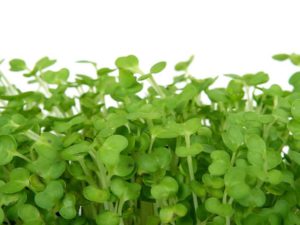
1. In most cases, birds first have to get used to the aromatic taste of these herbs. But once they’re familiar with their taste, budgies and other birds love to eat them. Nevertheless, please offer these herbs only in small quantities. They are rich in essential oils, which in higher doses could irritate the mucosa of the bird’s digestive system.
2. Again and again, somebody claims that parsley is toxic for birds. These plants contain toxic substances like apinol and myristicin. However, these two substances make up only a small part of the total contents. To make it clear: For a bird to be poisoned by parsley, the animal would have to eat enormous quantities of these herbs at a time. Bird owners who only occasionally offer small amounts of parsley do not endanger their feathered friends in general. So the dose makes the poison.

